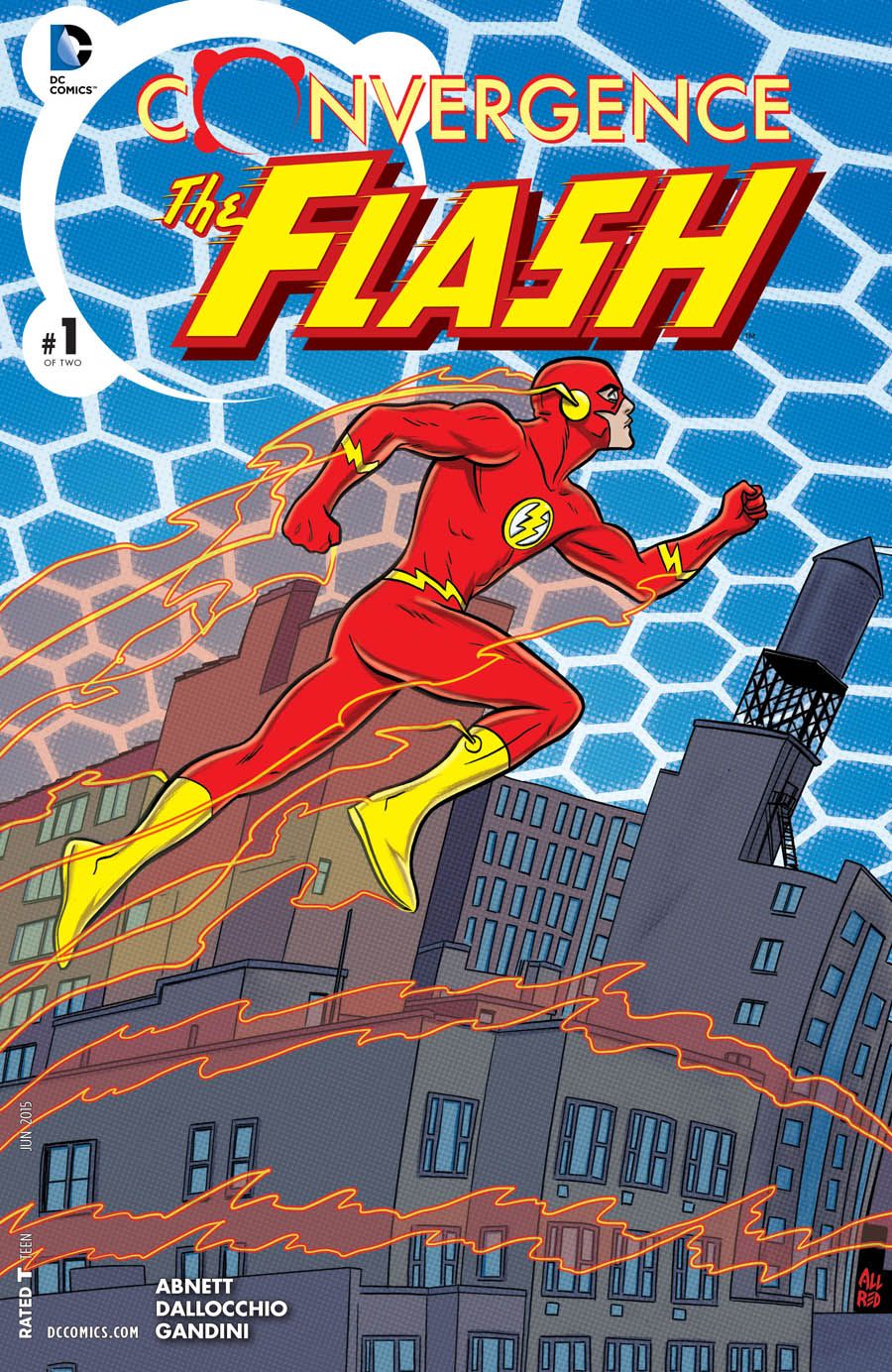Part of the problem with the "Convergence" tie-ins is that, inevitably, they're all going to get compared to one another. The ones that are at their best stand out because they tried something different, moving in a new direction than the standard. In the case of comics like "Convergence: The Flash" #1, Dan Abnett and Federico Dallocchio are operating on "Convergence" autopilot. Once you've seen it more than once, it's impossible to not notice the overall plodding nature.
Abnett's story delivers literally nothing that you haven't seen already, save with a different lead character. It's another comic that features a flimsy excuse on why Barry Allen is in pre-"Crisis" Gotham City (instead of in the future with Iris Allen), and another example of a character who's moping a year later over the loss of his powers. Then the dome comes down a few pages from the end, and the cliffhanger is a surprise character from another universe. There's nothing new, original or exciting here.
Worse, Barry comes across as one of the least heroic faces of the "Convergence" tie-ins. In some of the other books, the characters are a year into their imprisonment, still doing their best to break free and save their fellow citizens. Here, Barry is depressed because a woman ran faster than him while out jogging. It's hard to keep from grimacing on all sorts of levels. Nothing about this depiction of Barry is enough to make you want to see more of him; if anything, readers who never encountered the pre-"Crisis" character might be wondering why there was such a push to bring him back from the dead if this is what he was like. In the end, this is a "Convergence" tie-in where I find myself actively hoping that the other side wins.
Dallocchio's art is perfectly reasonable. It reminds me of creators like Andrea Sorrentino, with a slightly jagged edge and some healthy looking inks to help create shadows on the character. There's nothing dazzling about the art, but it doesn't need to be. He and colorist Veronica Gandini take the humdrum everyday life of Barry and bring it to the page; getting dressed and stretching are hardly exciting moments to draw, but they do so in a reasonable and good manner. I will say that Dallocchio's unmasked Bruce Wayne is somewhat unrecognizable -- it takes dialogue in context to figure out who he is -- but it's a small problem in otherwise solid art.
"Convergence: The Flash" #1 ultimately illustrates the weakest point of the "Convergence" event: the repetitive nature. The more you see the same sequence and setup, the easier it is to spot when things aren't working. In the case of "Convergence: The Flash" #1, it becomes hard to ignore that Abnett and Dallocchio's comic has a dud of a protagonist. That's a shame.

